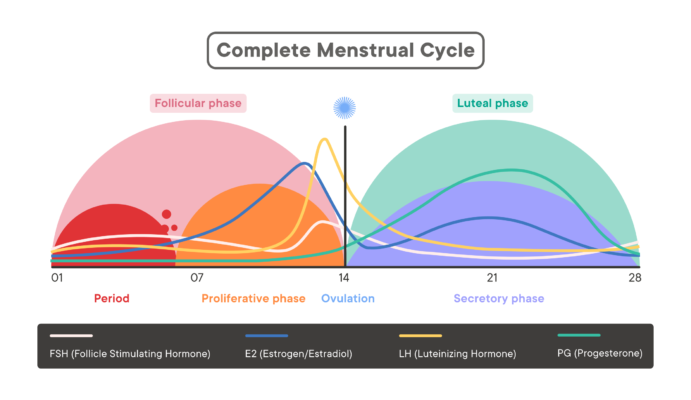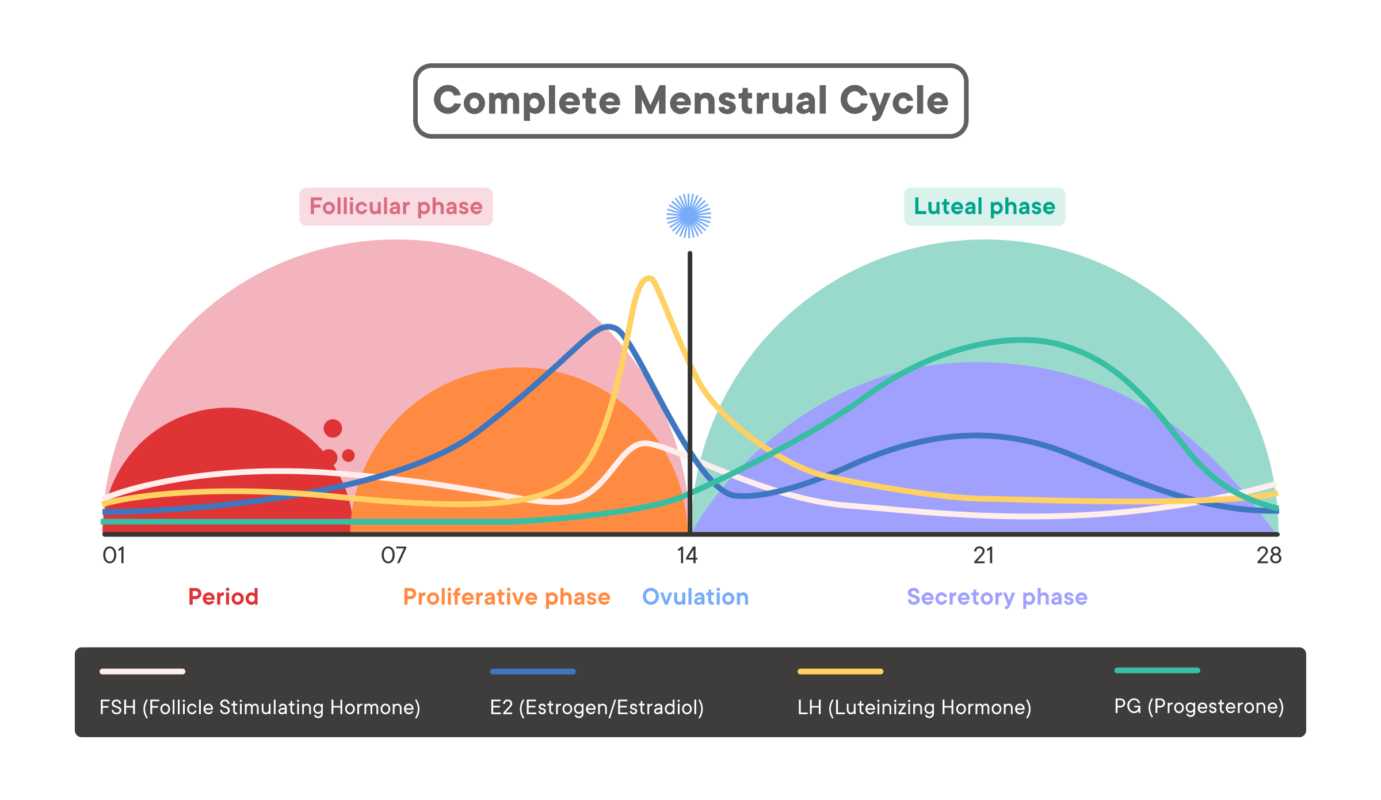During menopause, the menstrual cycle stops due to a significant decrease in the production of two key hormones: estrogen and progesterone. These hormones play critical roles in regulating the various stages of the menstrual cycle.
Estrogen:
- Stimulates the growth of the uterine lining (endometrium) in preparation for pregnancy.
- Plays a role in ovulation, the release of an egg from the ovary.
Progesterone:
- Helps maintain the thickened endometrium if pregnancy occurs.
- Triggers the shedding of the endometrium (period) if pregnancy doesn’t happen.

As a woman approaches menopause:
- Ovaries gradually decrease production of both estrogen and progesterone.
- Fluctuating hormone levels during perimenopause cause irregular periods.
- Once estrogen levels fall below a certain threshold, ovulation stops completely.
- Without ovulation, there’s no need for the endometrium to thicken, and progesterone production becomes sporadic.
- Periods eventually cease altogether.
This hormonal shift can also cause other symptoms like:
- Hot flashes
- Night sweats
- Vaginal dryness
- Sleep problems
- Mood swings
- Changes in body weight
Consulting a healthcare professional can help manage these symptoms and improve well-being during menopause.

